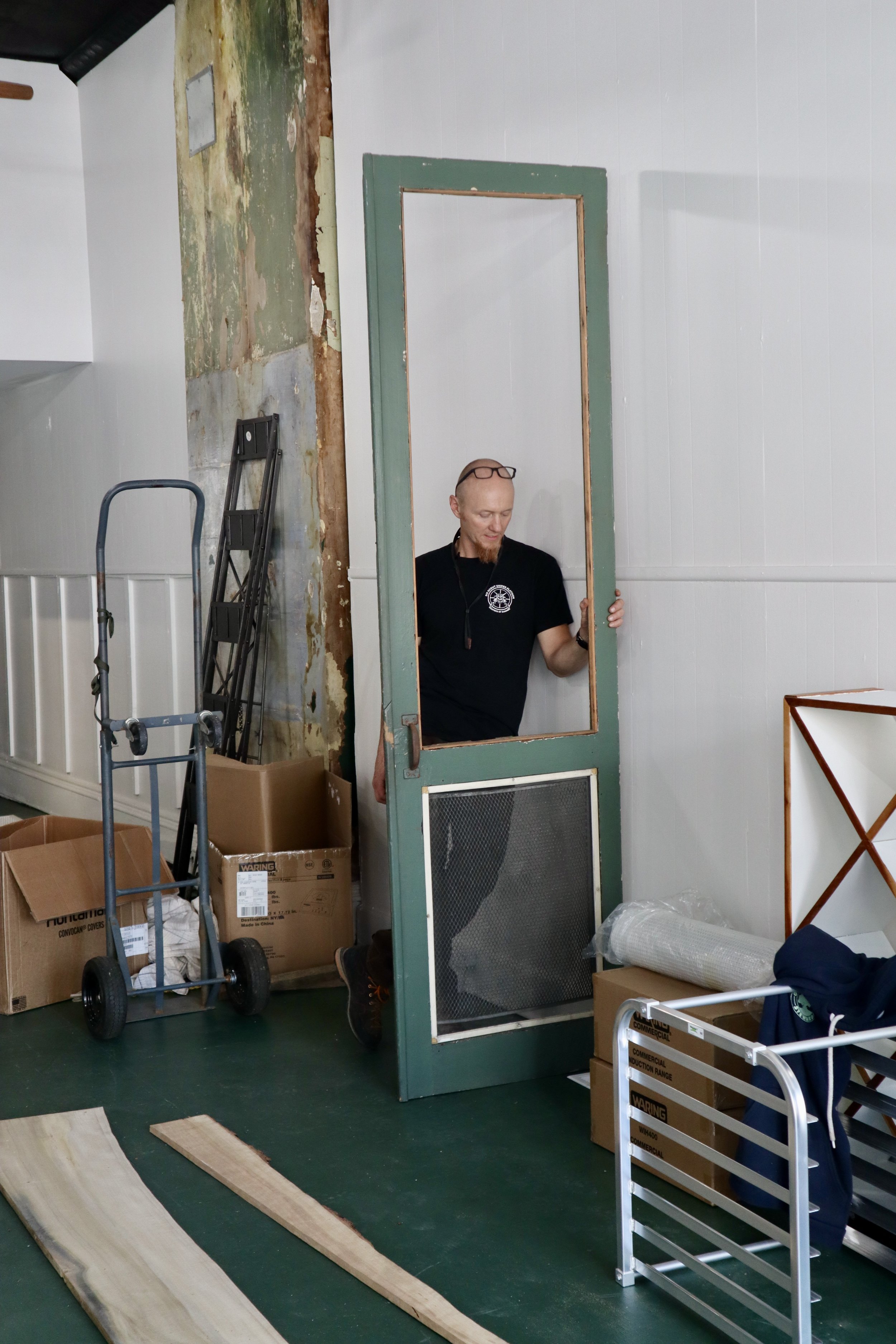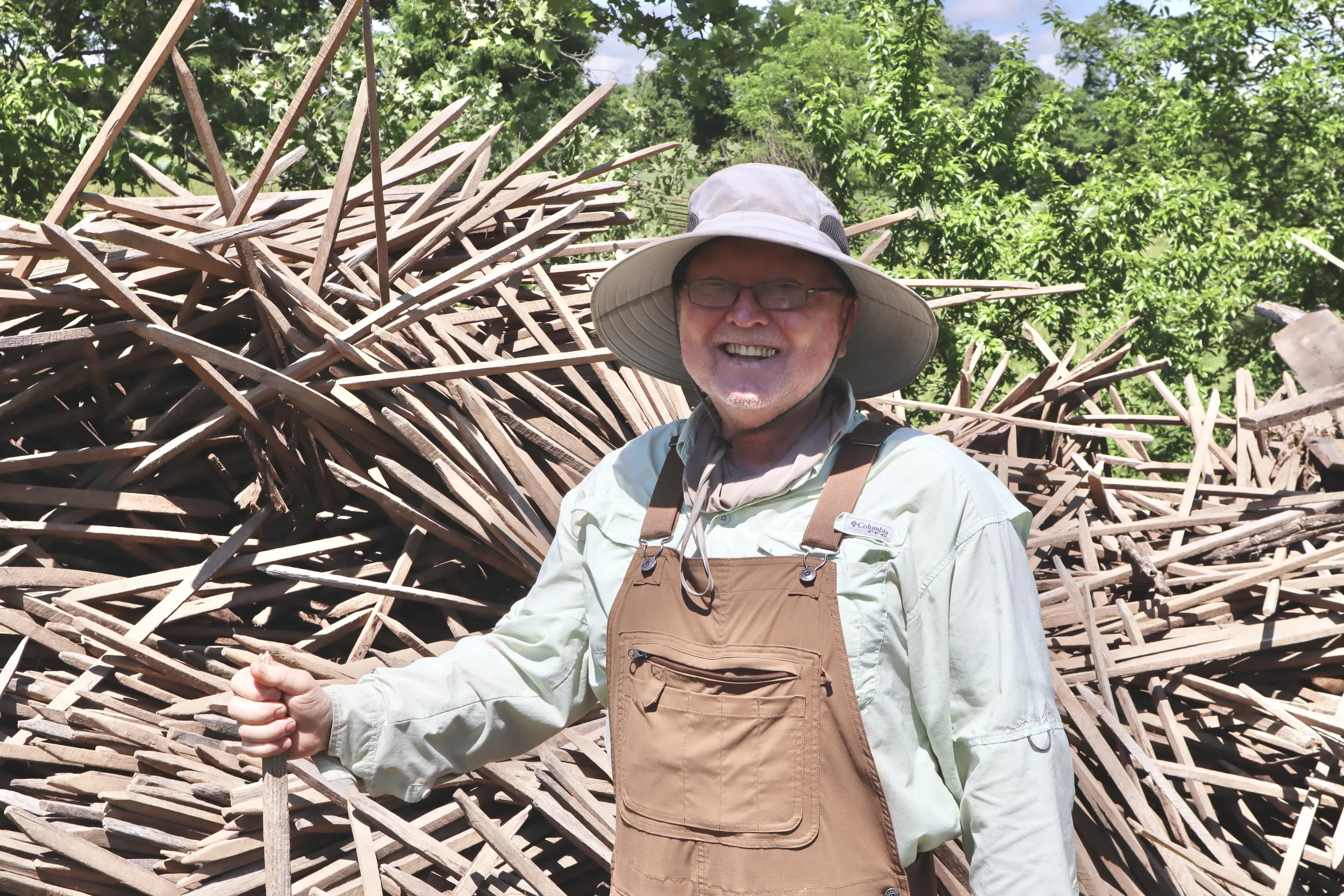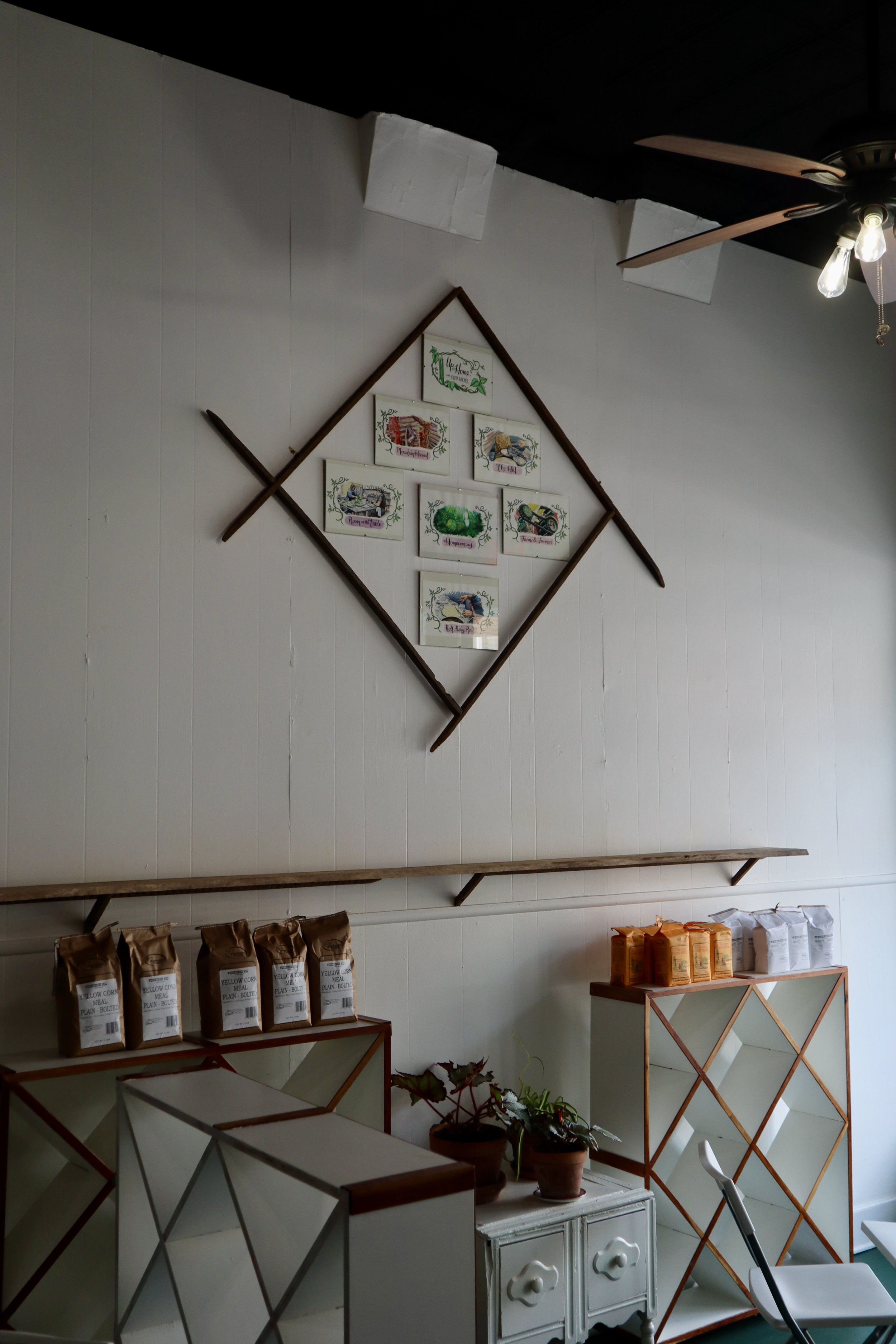Hewing to Heritage
story by Donna Hecker & photography by Talitha Schroeder
Use it up, wear it out, make it do, or do without. This Depression-era saying, recycled during WWII, often resurfaces when we talk about conservation and sustainability. But its pithiness obscures a certain romanticism.
When we planned our Holly Hill Cooking Studio, we were on a budget and every purchase got a once-, twice-, sometimes thrice-over look before approval. So there was a lot of creative reuse going on as we excavated old screen doors for partitions and fashioned shelves from storm-felled wood. Well, actually Michael Frazier did. Mike owns a company called Good Tree Stewards and he did the bulk of the work building out the studio.
It was Mike who suggested using tobacco sticks as shelf supports, as he had done around his own house. He was a bit surprised at our enthusiastic reaction, given that he was just trying to repurpose something there seemed to be a lot of lying around.
So it was our turn to explain that our Cooking Studio wouldn’t have been possible without Kentucky’s participation in the Tobacco Master Settlement Agreement of the 1990s. That settlement money gave family farms the support they needed to diversify into other crops and gave rise eventually to the Kentucky Proud program and hundreds of farmers markets.
Growing up in central Kentucky before the settlement, it was impossible to escape tobacco’s influence, even if you didn’t live on a farm. Both my parents smoked – cigarettes for my mom and pipes, then cigars, for my dad – and many of my classmates had families who grew it.
Out in a tobacco field on a stifling summer day, my best friend and I once took refuge in an abandoned car smelling of sunbaked vinyl, while her cousin menaced us with a hornworm as long and thick as his thumb.
We often navigated curvy country roads behind the swaying flatbed trailer of a truck hauling a load to market, the dusky scent of cured tobacco hanging heavy in the cold winter air and its mahogany leaves skimming the pavement.
Mom and her co-workers at the local Sears & Roebuck knew there would be no large ticket purchases for Christmas until the yearly crop had sold and farmers had cash in hand.
But as nicotine’s dangers became more widely known and Big Tobacco was called to account, Kentucky joined other tobacco-growing states to negotiate a settlement designed to curtail its use and provide compensation to farmers for diversifying their crops.
Since 1998 Kentucky has received nearly $3 billion in tobacco settlement money, including $118 million this year. Our friend Richard Jones, whose family owns Happy Jack’s Farm, described advising then-Commissioner of Agriculture Billy Ray Smith to invest some of the funds to establish farmers markets and support direct-to-consumer sales.
We’re awaiting results of the USDA 2022 farm census but prior records show Kentucky losing farms at a much slower rate than other states. According to kentucky.gov, we have just shy of 76,000 farms, comprising over 50% of our total land area. The majority of these are family farms, and more and more are being run by women and younger people.
In our Holly Hill restaurants, local farm goods have become so abundant and accessible that we employ a local foods aggregator to handle the logistics of purchasing and distributing local produce, eggs and meats. And we can even source them from our wholesale suppliers. Things have come a long way from the days when I would case the Frankfort farmers market, relaying the morning’s offerings by phone to Chef Ouita. Or load my hatchback with bushel bags of sweet corn from Happy Jack’s.
But about those tobacco sticks… there’s still a pile of them lying in a field outside an old tobacco barn at Happy Jack’s. They’re weathered and warped, and Richard estimates there’s probably thousands more like them around the area. We got ours from our neighbor Mike Perry who farms down the road from Holly Hill Inn. Mike and his wife Amy live next door to Holly Hill Inn, once her family home.
In a column he wrote for the Lebanon Democrat newspaper in Macon County, Tenn., Jack McCall conceded that “all in all, a tobacco stick didn’t have a bad life. (They) just laid around from November until late July every year. By early November their job was done until the next summer.”
We’re glad we were able to give a few dozen tobacco sticks new life in our Holly Hill Cooking Studio, helping to hold up our shelves and framing the beautiful watercolors Arwen Donahue created for our Up Home series.
We like having these pieces of tobacco history around, to remind us how we got to be where we are now. We’re thankful for the role that tobacco and its decline played in the rise of our local food economy, and we appreciate how these time-worn sticks now hew to our Kentucky farmland heritage.
Related Content
Cooking Studio
For years we’ve dreamed of a place, away from the hustle and bustle of a restaurant kitchen, where we could connect with friends and family and learn about Kentucky culture and cuisine together.
We now offer intimate classes at our Cooking Studio, led by Chef Ouita Michel and other culinary professionals from our Holly Hill team and beyond.
© 2023, Holly Hill Inn/Ilex Summit, LLC and its affiliates, All Rights Reserved





